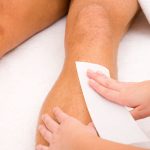For sufferers of TMJ disorders, getting the right diagnosis is the first step to finding a treatment option that will eliminate the pain and restore function. Disorders of the TMJ in Hudson can be quite debilitating. Symptoms include pain and swelling in and around the jaw, joint, and face that may spread to the neck, shoulders, and ears. Many people describe hearing a popping, clicking, or grinding noise when they chew and may even have difficulty using this joint at all. The pain and joint problems can last for a number of years and can become quite severe. For the correct treatment to be found, it is important, first of all, to receive the right diagnosis.
The difficulty in diagnosing problems with the TMJ in Hudson arises from the fact that other problems can produce very similar symptoms. A toothache, arthritis, or sinus problems can all cause symptoms almost identical to problems with the TMJ. The diagnosis generally starts with a very thorough examination by a dentist or TMJ specialist. This examination will often include a visual examination. The dentist will probably want to listen to the joint to check for any noise while the jaw is moving. Other indicators that will be checked for include limited motion in the jaw joint and any deterioration of bite or facial muscle function.
Occasionally, X-rays are necessary to get a better picture of the joint function. This includes full panoramic X-rays that allow the dentist to visualize the jaw, TMJ, and teeth. These X-rays are particularly helpful because they can rule out other conditions that may cause similar symptoms. A doctor or specialist may also order other types of tests that help to create a better picture of the jaw and how it is functioning. These may include MRIs or CT scans. Once a correct diagnosis is made, a treatment plan can be created to restore function and reduce pain.
Fortunately, many treatments have been found to be very effective for treating disorders of the TMJ in Hudson. Generally, patients are asked to try basic, conservative measures first before resorting to extreme solutions such as surgery. Simple suggestions like hot and cold packs, eating soft foods, and taking pain relieving and anti-inflammatory medications can help in some cases. If at home treatments are unsuccessful it may be necessary to consult a physical therapist or oral surgeon that specializes in treating TMJ disorders. Half the battle has already been won, though, as receiving a correct diagnosis for a TMJ disorder is often the first step to finally receiving the care that is needed.
TMJ Hudson – Are you sensing problem with your TMJ? Hudson based Columbia Physical Therapy, P.C. can help you with the best therapies.






